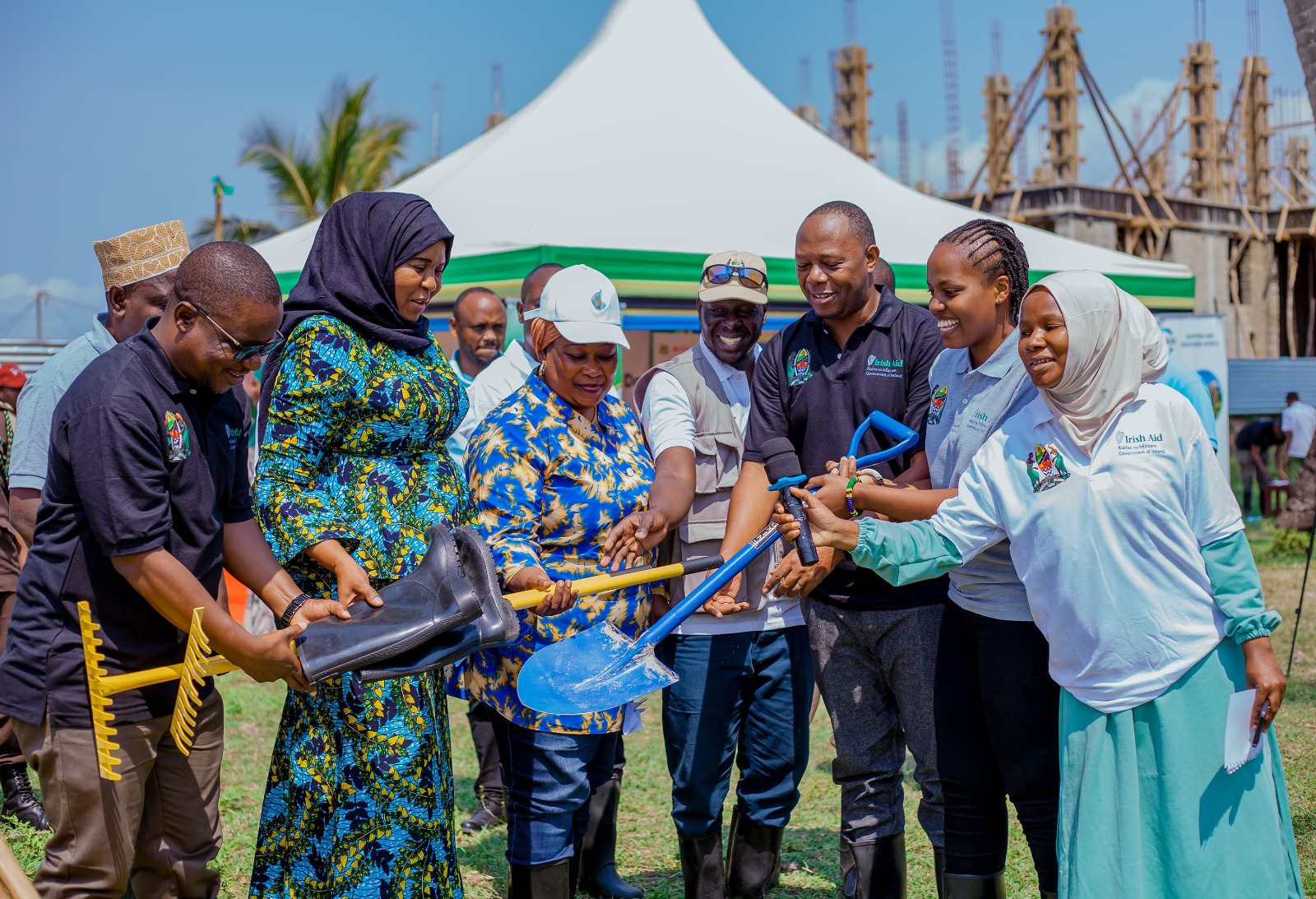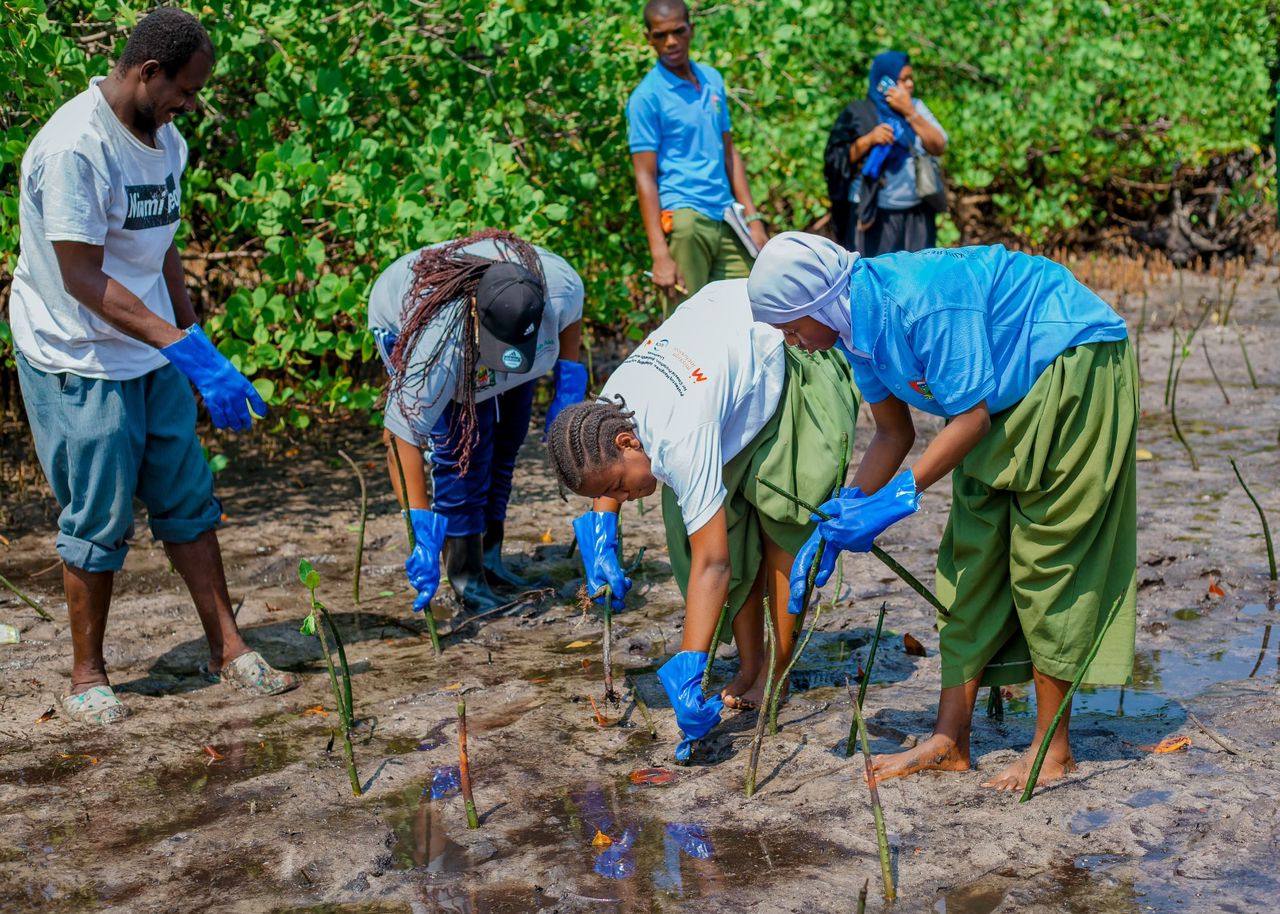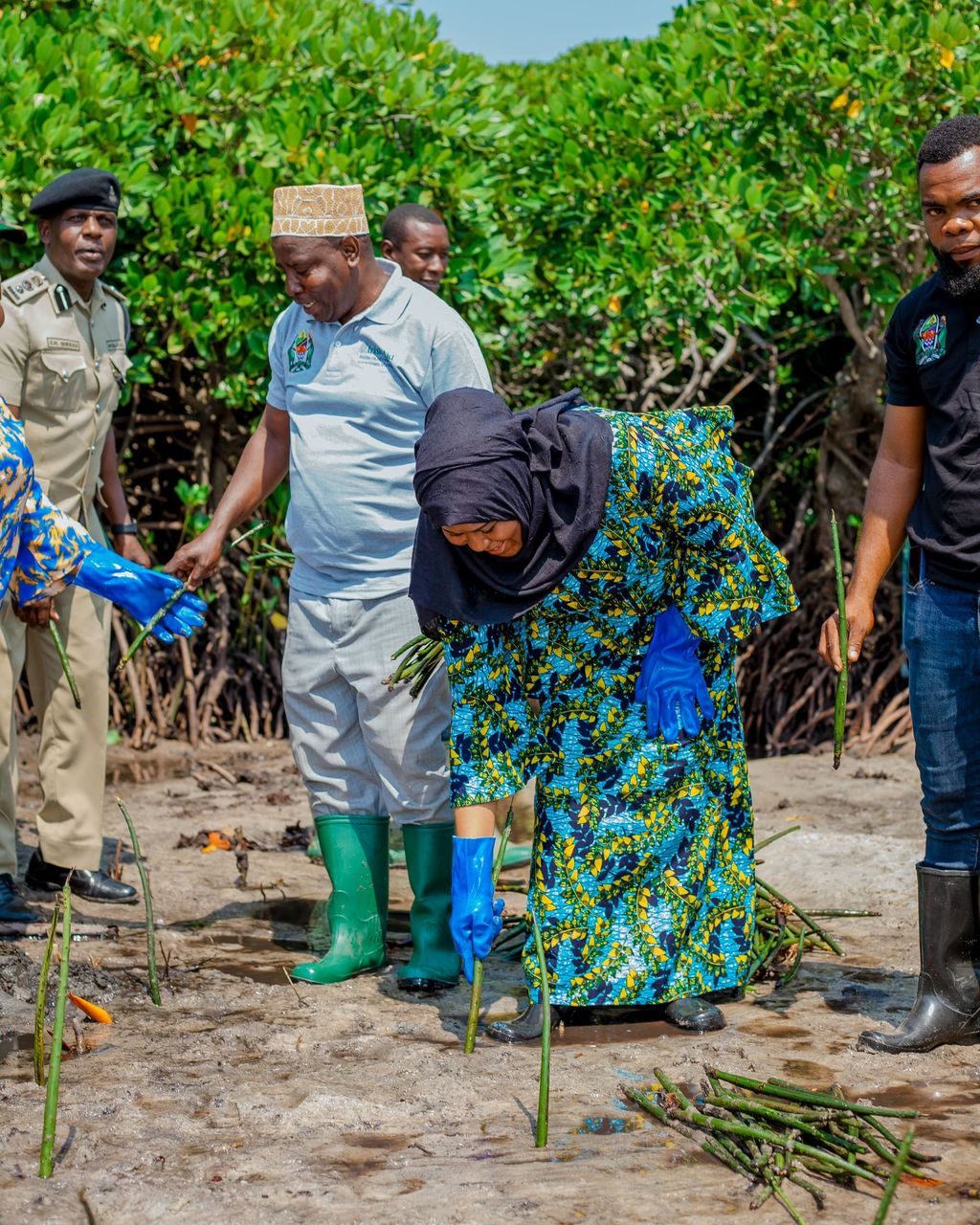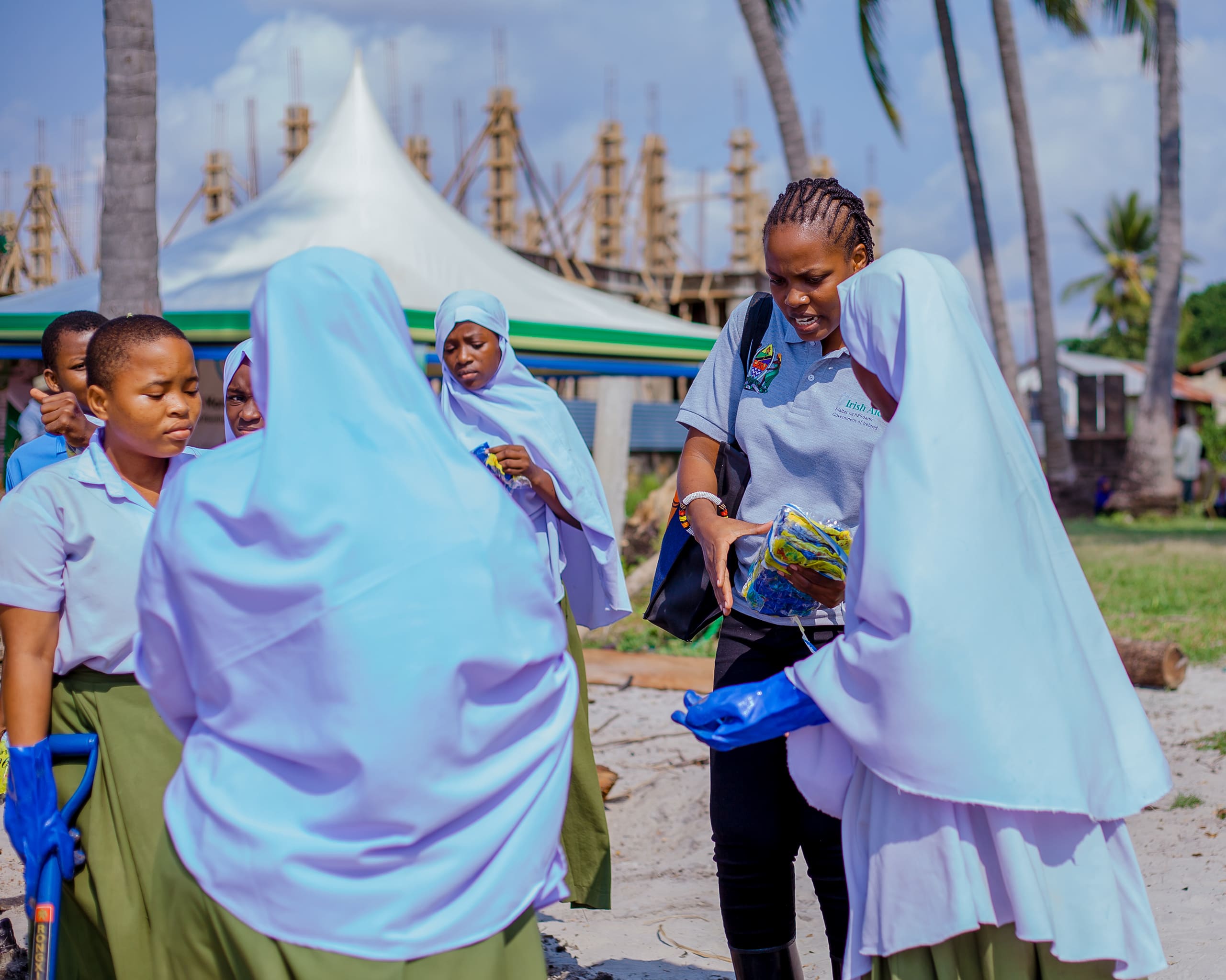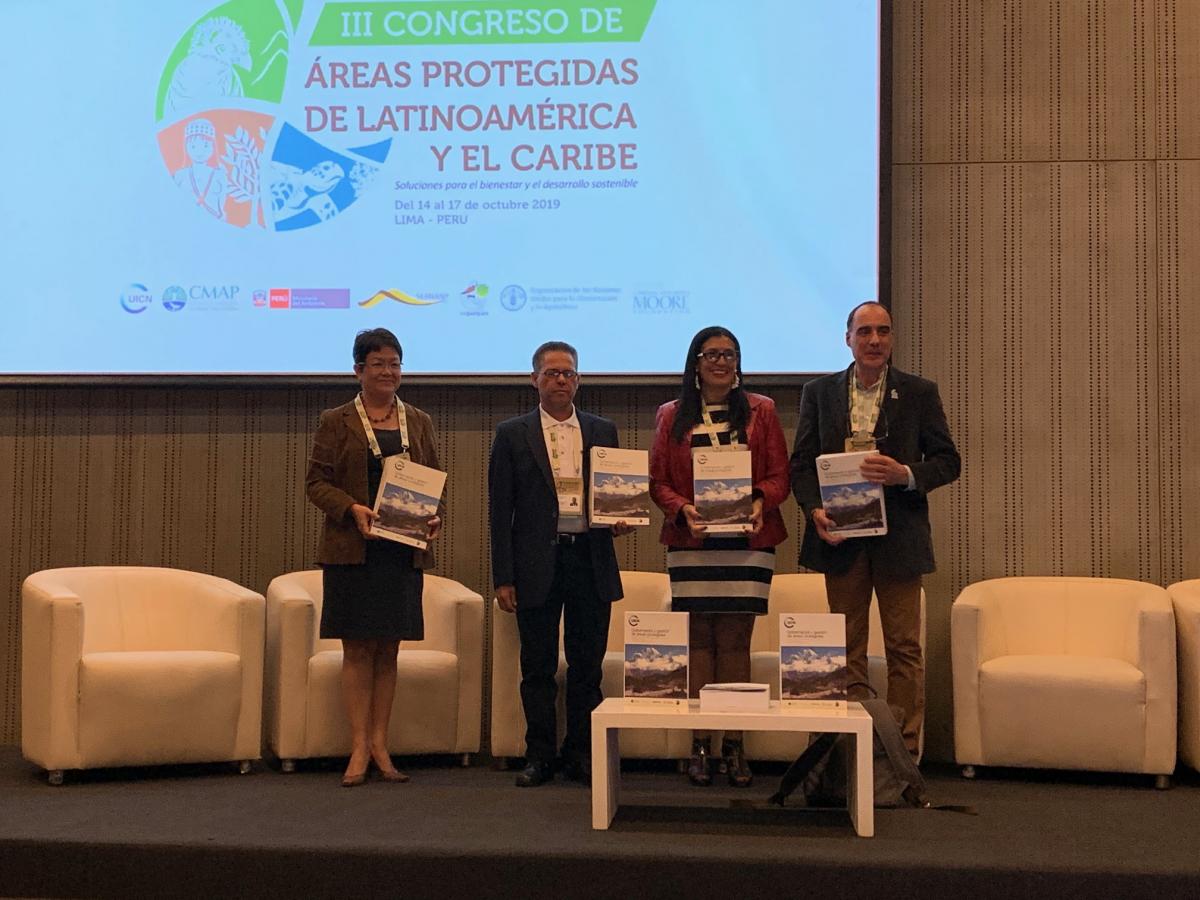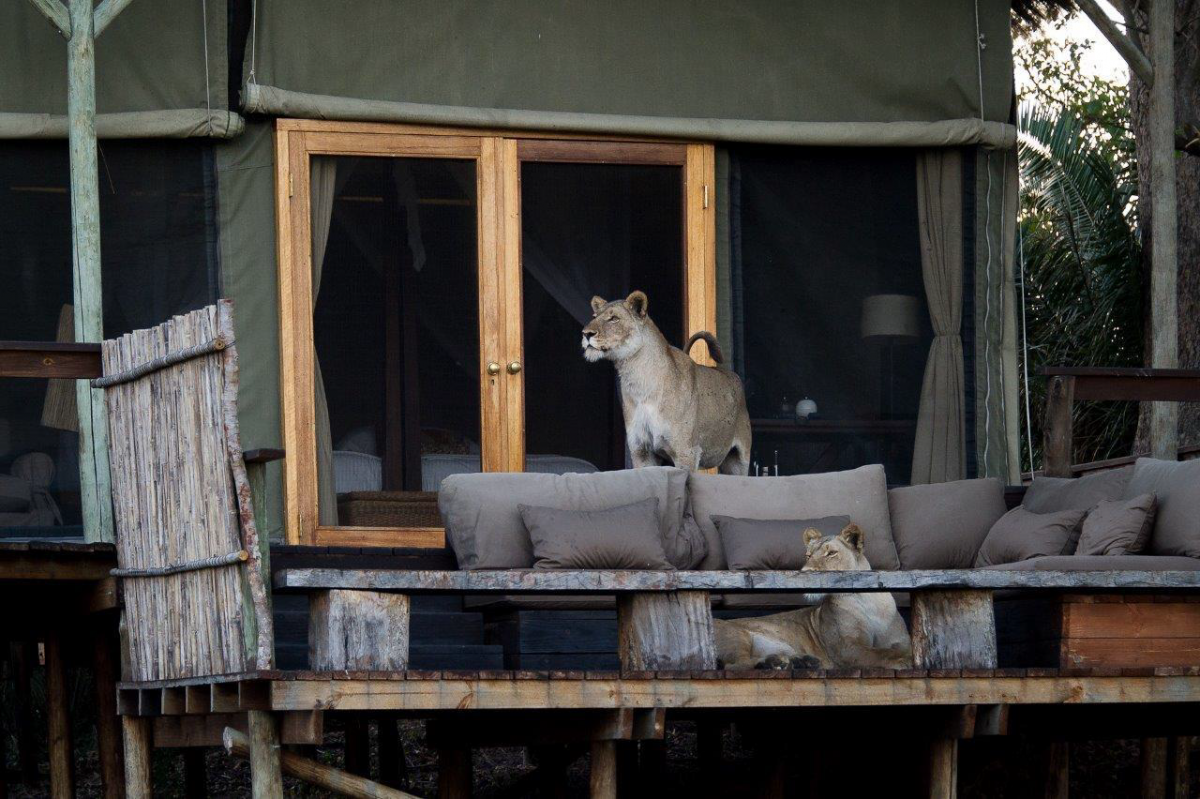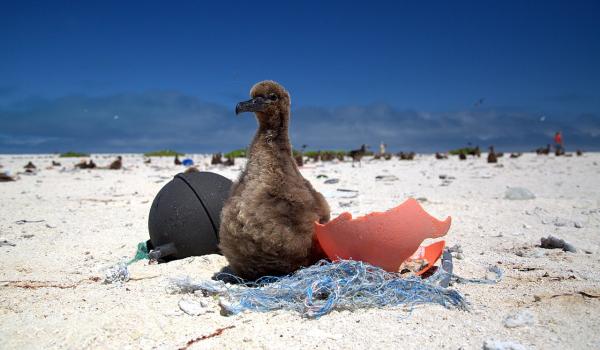Tanga-Pemba Multi-Stakeholders Forum Members Celebrate 2024’s Mangroves Day in Tanga.
In Tanga, The Tanga-Pemba Multi-Stakeholders Forum Members unite for the International Day for Conservation of Mangroves Ecosystem in an event officiated by the Tanga Regional Commissioner.
Tanga, Tanzania – 26 July 2024. The Tanga-Pemba Multi-Stakeholders Forum (T-PMSF) members, joined by community members, local civil society organisations (CSOs) and students from Kihere Secondary School celebrated the International Day for Conservation of Mangrove Ecosystems at Sahare Kijijini beach area in Tanga City Council. The celebrations were officiated by the Regional Commissioner for Tanga, Her Excellency Dr. Batilda Burian, where the theme of the day focused on raising awareness among coastal communities and stakeholders about the vital importance of conserving and restoring mangrove ecosystems.
Mangroves play a critical role in maintaining biodiversity, protecting coastal areas, mitigating climate change, supporting sustainable livelihoods, and preserving cultural heritage. These unique ecosystems are essential for the health and resilience of our coasts and oceans.
“For us to continue to enjoy the benefits from our ocean, we must keep our mangrove ecosystems,” said the Regional Commissioner for Tanga, H.E Dr Batilda Burian. “Mangroves provide habitat for critical aquatic species, which provide us with multi-fold of benefit and revenue. We will continue the efforts to restore our mangroves in Tanga to stimulate our blue economy. Mangroves are vital not only to our marine ecosystems, but also viable to our economic development. We aim to reach capacity for blue carbon trading from our mangrove restoration efforts in the region.” Remarked the Regional Commissioner.
The celebrations in Tanga included a series of events, led by handing of new beach cleaning instruments to the community as well as community coastal ecosystems awareness activities aimed at highlighting the importance of mangrove conservation before beach clean-up and mangrove planting activities. The event saw participation of T-PMSF members which comprise government agencies, academia, national and international non-governmental organisations, and civil society organisations.
IUCN remains committed in its commitment to the global conservation and restoration of mangroves. Through collaborative efforts and innovative conservation strategies, we aim to enhance the resilience of coastal ecosystems and support the communities that depend on them through the Great Blue Wall initiative, which seeks to unlock unprecedented nature-based recovery efforts through enhancing socio-ecological resilience and fostering the development of a regenerative blue economy, catalysing political leadership and financial support to achieve a nature-positive world by 2030.
Tanzania’s Manager for Coastal and Ocean Resilience (COR) Programmes at IUCN underscored the role of IUCN in protecting the future of coastal and marine ecosystems in the country, “we are committed to restoring more than 250 hectares of mangroves in Tanga-Pemba seascape in two years. Through our Bahari Mali and ReSea projects, we are supporting women and youth in the coastal communities to improve livelihoods in these coastal communities.”
The community members conveyed their gratitude for the efforts from most of the T-PMSF member projects, including projects from the Tanzania’s Forest Services (TFS), Mwambao CCN, The WCS, WWF, UZIKWASA and IUCN that extend their conservation efforts in their community. “Sahare community has been able to plant over 6000 mangroves this year and is benefiting from enhancement of mangrove management to harness its byproducts, such as beekeeping facilities, which is also improving livelihood and our environment” Said the Sahare Kijijini representative during the event.
About Tanga-Pemba Multi-Stakeholders Forum
In August 2022, IUCN in collaboration with the governments of Mainland Tanzania through Marine Parks and Reserves Unit (MPRU) and Zanzibar through Department of Marine Conservation (DMC), co-organized a meeting of stakeholders of the Tanga-Pemba Seascape in Tanga. One of the objectives of the meeting was to share findings and recommendations of a report supported by IUCN to assess governance profile of marine and coastal resources management in the Tanga-Pemba seascape.
One of the findings of the assessment indicates the presence of various stakeholders involved in conservation efforts in the seascape area, at different scales and approaches. However, these stakeholders were not coordinated to ensure that their work contributes to governance and conservation enhancement. The report recommended seeking ways to coordinate stakeholders so that their collective efforts can improve governance and achieve collective conservation goals. As a response to coordination challenge, meeting participants proposed the establishment of the Tanga-Pemba Seascape Multistakeholder Forum(T-PMSF).
About IUCN
The International Union for Conservation of Nature (IUCN) is a membership Union uniquely composed of both government and civil society organisations. It provides public, private and non-governmental organisations with the knowledge and tools that enable human progress, economic development and nature conservation to take place together. Founded in 1948, IUCN has become the world’s largest and most diverse environmental network, harnessing the knowledge, resources, and reach of its 1,400 Member organisations and the input of 17,000 experts.
In Tanzania, the IUCN’s Coastal and Ocean Resilience (COR) Programme works with partners and the government to safeguard the future of coastal communities and marine ecosystems in the country. In Tanga-Pemba seascape, the programme implements Bahari Mali project, funded by the Irish Aid and the Regenerative Seascape for People, Climate and Nature (ReSea) project funded by Global Affairs Canada, and implemented with Mission Inclusion in 5 countries in the Western Indian Ocean region, including the Tanzania Tanga-Pemba seascape.
For Press Inquiries for this event, Contact:
Emmanuel Godliving Minja
IUCN Communications Team
Emmanuel.minja@iucn.org
+255 744 191 216
Dar es Salaam, Tanzania
